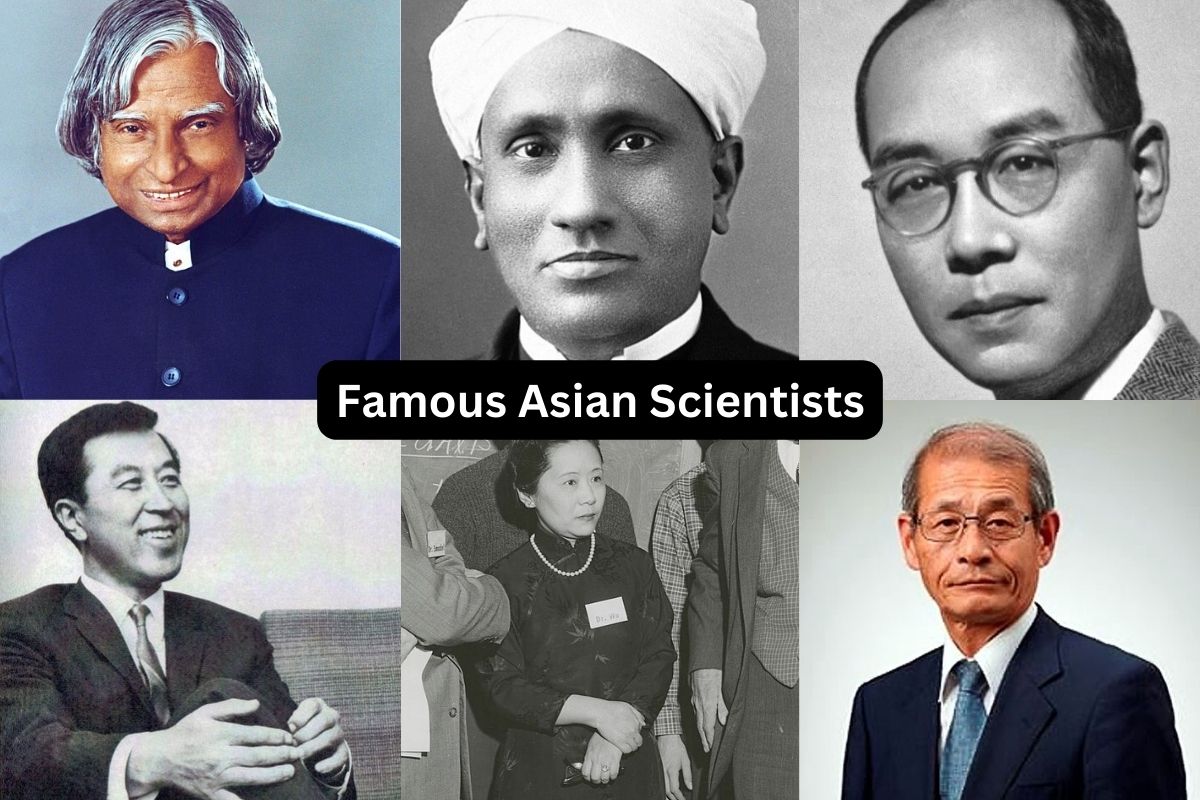From unraveling the mysteries of the universe to revolutionizing agriculture and technology, Asian scientists have made remarkable contributions to the world of science across diverse fields.
In this article, we delve into the lives and achievements of renowned Asian scientists whose groundbreaking work has left an indelible mark on human knowledge, ranging from physics and chemistry to biology and beyond.
Their stories serve as a testament to the power of curiosity, innovation, and dedication in shaping our understanding of the natural world and advancing the frontiers of science.
Join us in celebrating the extraordinary achievements of these luminaries and the impact they have had on our global scientific community.
Famous Asian Scientists
1. Sir C. V. Raman (India)
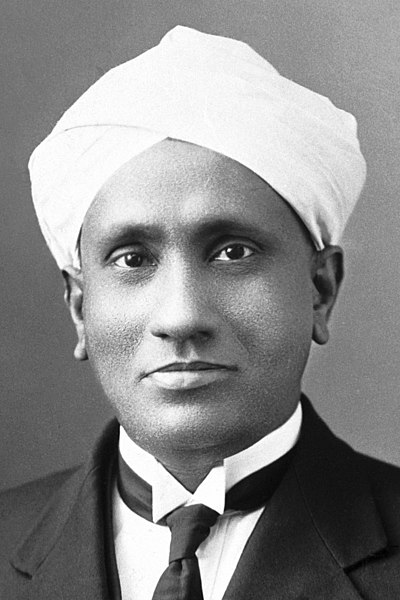
Sir C. V. Raman was an Indian physicist who is best known for discovering the phenomenon of inelastic scattering of photons, which came to be known as the “Raman Effect.” This groundbreaking discovery earned him the Nobel Prize in Physics in 1930.
The Raman Effect involves the scattering of light by molecules, leading to changes in the frequency of the scattered light and providing valuable insights into the molecular structure of substances.
Also Read: Famous British Scientists
Raman’s work had a profound impact on the fields of spectroscopy and condensed matter physics. He also played a crucial role in the establishment of several scientific institutions in India and is widely regarded as one of the greatest scientists in Indian history.
2. Chien-Shiung Wu (China)
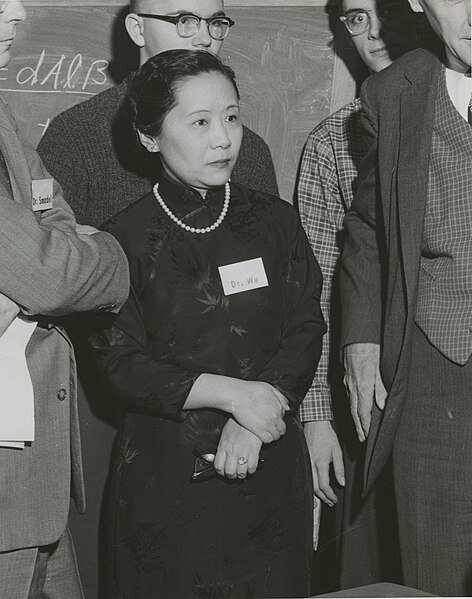
Chien-Shiung Wu was a Chinese-American experimental physicist who made significant contributions to the field of nuclear physics.
One of her most famous contributions was the Wu Experiment conducted in 1957, which provided experimental evidence for the violation of the principle of parity in weak nuclear interactions. This discovery had profound implications for the understanding of fundamental forces in particle physics.
Also Read: Most Famous German Scientists
Wu’s pioneering experiments and her contributions to the field of nuclear physics earned her recognition as one of the most influential experimental physicists of her time. She was also a trailblazer for women in the sciences.
3. Abdul Kalam (India)

Dr. A. P. J. Abdul Kalam, often referred to as the “Missile Man of India,” was an aerospace engineer and scientist who played a pivotal role in India’s civilian space program and military missile development. He was instrumental in the development of India’s first satellite launch vehicle (SLV-III) and the Agni and Prithvi missiles.
Kalam served as the President of India from 2002 to 2007 and was widely admired for his contributions to science and technology education, particularly among the youth.
He is remembered for his dedication to India’s space and defense programs and for his inspirational leadership. His legacy continues to inspire future generations of scientists and engineers in India.
4. Hideki Yukawa (Japan)

Hideki Yukawa was a Japanese theoretical physicist known for his groundbreaking work in the field of nuclear physics.
In 1949, he was awarded the Nobel Prize in Physics for his development of the “Yukawa potential,” which described the strong nuclear force and explained the interactions between protons and neutrons within atomic nuclei. His work laid the foundation for understanding the behavior of subatomic particles.
Yukawa’s contributions to nuclear physics had a profound impact on the field of particle physics, and his theories continue to be fundamental in our understanding of the strong force that binds atomic nuclei together.
5. Yoichiro Nambu (Japan)

Yoichiro Nambu was a Japanese-American theoretical physicist who made significant contributions to the field of particle physics.
He is best known for his work on spontaneous symmetry breaking in the context of the strong force, which laid the theoretical groundwork for understanding the masses of particles and the Higgs mechanism. In 2008, he was awarded the Nobel Prize in Physics for his pioneering contributions.
Nambu’s work had a profound and lasting impact on the field of theoretical physics, particularly in the development of the Standard Model of particle physics, which describes the fundamental particles and their interactions.
6. Akira Yoshino (Japan)
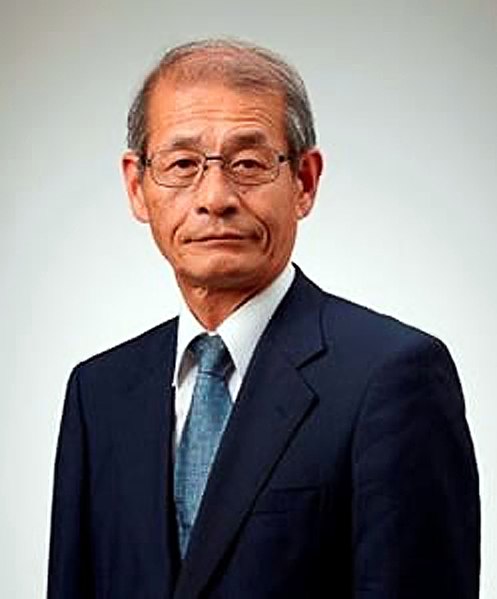
Akira Yoshino is a Japanese chemist who was awarded the Nobel Prize in Chemistry in 2019 for his pivotal role in the development of lithium-ion batteries.
His work, alongside John B. Goodenough and Stanley Whittingham, helped create rechargeable lithium-ion batteries, which revolutionized portable electronics, such as laptops and smartphones, and enabled the growth of electric vehicles.
Yoshino’s contributions to battery technology have had a transformative impact on modern society, leading to more efficient and environmentally friendly energy storage solutions.
Lithium-ion batteries have become ubiquitous and play a critical role in our daily lives, from powering our devices to reducing carbon emissions in transportation.
7. Chen-Ning Yang (China)

Chen-Ning Yang is a Chinese-American physicist who, along with Tsung-Dao Lee, made groundbreaking contributions to the field of particle physics.
In 1957, they conducted the famous “Wu Experiment” that provided experimental evidence for the violation of parity in weak nuclear interactions, challenging the previously held principle of parity conservation. For their work, Yang and Lee were jointly awarded the Nobel Prize in Physics in 1957.
Yang’s research in particle physics and his role in the discovery of parity violation significantly impacted the field of theoretical and experimental physics, leading to a deeper understanding of the fundamental forces of the universe.
8. Tsung-Dao Lee (China)

Tsung-Dao Lee is a Chinese-American physicist who, alongside Chen-Ning Yang, conducted the Wu Experiment in 1957, providing experimental evidence for the violation of parity in weak nuclear interactions.
This groundbreaking discovery challenged the conventional understanding of particle physics and earned Lee and Yang the Nobel Prize in Physics in 1957.
Lee’s work in particle physics and his contribution to the understanding of the weak nuclear force’s behavior without parity conservation had a lasting impact on the field, influencing subsequent research in particle physics and the development of the Standard Model.
9. Venkatraman Ramakrishnan (India)
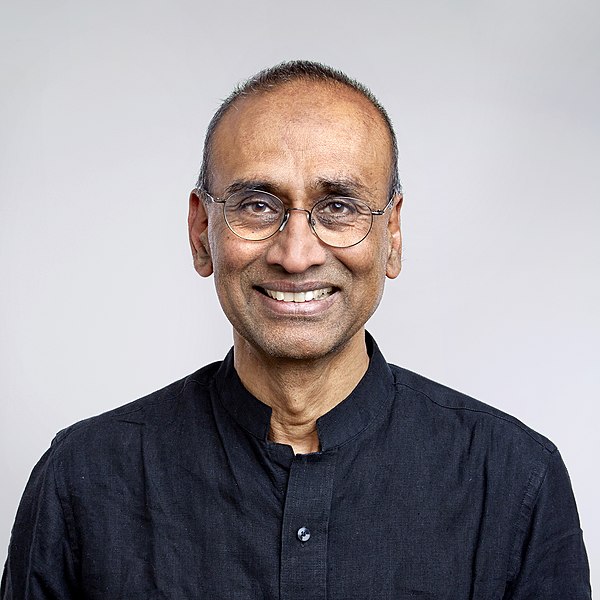
Venkatraman Ramakrishnan is an Indian-born structural biologist who was awarded the Nobel Prize in Chemistry in 2009. He was recognized for his pioneering work on the structure and function of the ribosome, a complex molecular machine responsible for protein synthesis in cells.
His research provided critical insights into the ribosome’s inner workings at the atomic level, advancing our understanding of cellular processes.
Ramakrishnan’s contributions to structural biology and his study of the ribosome have paved the way for the development of antibiotics and therapies targeting various diseases. His research also sheds light on the fundamental processes of life.
10. Yuan Longping (China)

Yuan Longping, often referred to as the “Father of Hybrid Rice,” was a Chinese agronomist and geneticist. He made groundbreaking contributions to agriculture by developing high-yielding hybrid rice varieties.
His work helped address food shortages and increased rice production, making a significant impact on global food security.
Yuan Longping’s development of hybrid rice varieties revolutionized rice farming and played a crucial role in alleviating hunger in many parts of the world. His legacy continues to influence modern agriculture and efforts to feed a growing global population.
